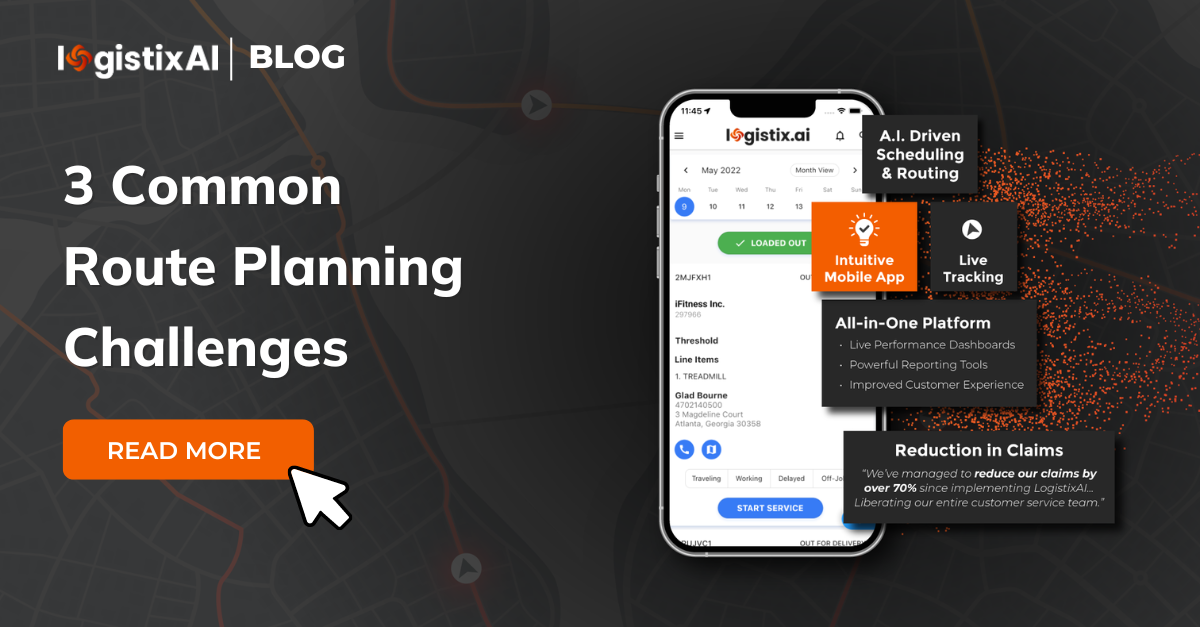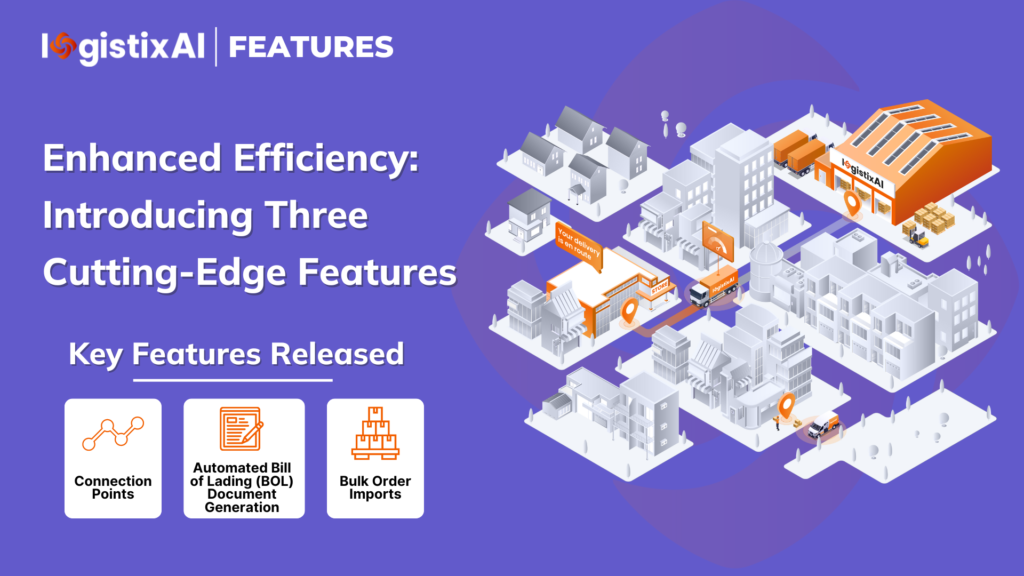3 Common Route Planning Challenges
Efficient route planning is a cornerstone of success in the logistics industry. Whether you’re managing a fleet of trucks for long-haul deliveries or coordinating last-mile distribution, the complexities of creating effective routing plans can be daunting. At LogistixAi, we understand the intricacies involved in optimizing routes to maximize efficiency and customer satisfaction. Here, we explore three common route planning challenges and how leveraging technologies like AI in logistics can help overcome them.
1. Real-Time Adaptation in Dispatch Tracking
One of the primary challenges in route planning is adapting to real-time changes. Traffic congestion, road closures, and unexpected delays can disrupt even the most meticulously planned routes. This is where real-time data becomes crucial for dispatch track operations. By incorporating AI in logistics, companies can dynamically adjust routing plans to account for current conditions, ensuring timely deliveries and efficient use of resources.
Predictive analytics play a pivotal role in this adaptation process. By analyzing historical data and current traffic patterns, AI systems can forecast potential disruptions and suggest alternative routes before issues arise. This proactive approach not only enhances efficiency but also boosts customer satisfaction by providing accurate delivery windows.
2. Optimizing Final Mile Deliveries
The final mile of delivery is often the most complex and costly segment of the logistics chain. This is where trucking logistics faces significant challenges, particularly in urban areas with dense traffic and limited parking. Route optimization becomes essential to navigate these hurdles and ensure timely deliveries.
AI in logistics can revolutionize final mile deliveries by creating optimized routing plans that minimize travel time and fuel consumption. Advanced algorithms consider a multitude of factors, including delivery windows, vehicle capacity, and traffic conditions, to generate the most efficient routes. Additionally, real-time updates enable drivers to reroute on the fly, avoiding traffic jams and other delays. This level of precision and flexibility is indispensable for maintaining high service standards in the competitive logistics market.
See how LogistixAI can Transform your Entire operation
3. Integrating Predictive Analytics for Better Planning
Effective route planning is not just about responding to real-time conditions; it’s also about anticipating future challenges. Integrating predictive analytics into your dispatch track system can provide significant advantages in trucking logistics. By analyzing patterns and trends, predictive analytics can identify potential issues such as peak traffic times, seasonal demand fluctuations, and common delivery bottlenecks.
AI in logistics leverages this data to enhance route optimization. For instance, predictive models can forecast the best times for deliveries to avoid peak traffic or suggest alternative routes based on historical delay patterns. This foresight allows logistics managers to create more reliable and efficient routing plans, reducing the likelihood of disruptions and enhancing overall operational efficiency.
Transforming Route Optimization Logistics With Logistix AI
By embracing technological advancements, businesses can optimize their final mile operations, thereby improving customer satisfaction, reducing costs, and strengthening their competitive position in the evolving landscape of e-commerce and retail logistics.
With diverse routing needs across different delivery organizations, finding a solution tailored to complex last mile operations can be challenging. Logistix AI offers cutting-edge routing capabilities designed to address the intricacies of modern logistics. Reach out to our routing experts to discover how Logistix AI can revolutionize your routing operations and propel your business into the next generation of logistics efficiency.



